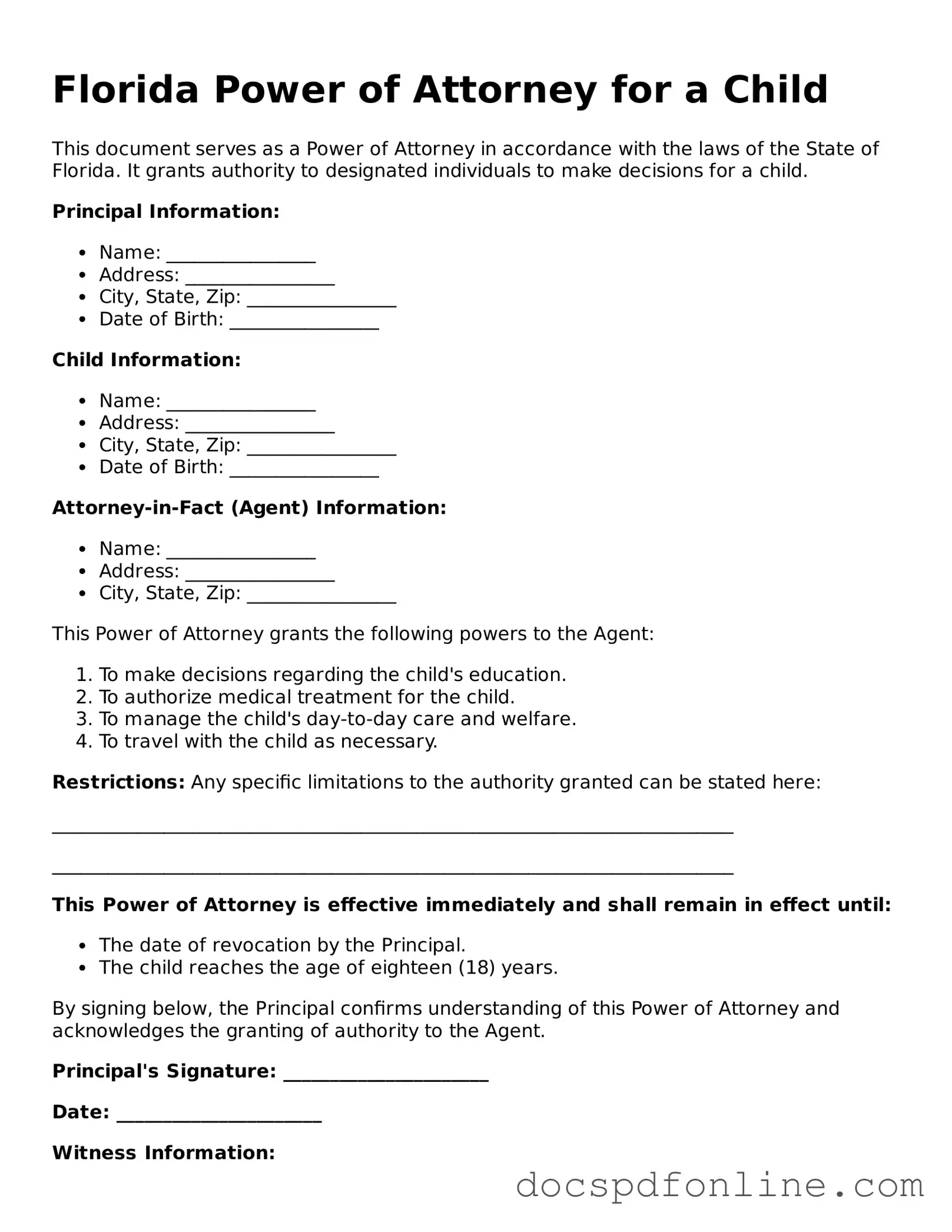Legal Power of Attorney for a Child Template for Florida
The Florida Power of Attorney for a Child form is a legal document that allows a parent or guardian to designate another individual to make decisions on behalf of their child. This form can be essential in situations where the parent is unable to care for the child temporarily. Understanding its purpose and proper use is crucial for ensuring the child's well-being and continuity of care.
Launch Editor Now

Legal Power of Attorney for a Child Template for Florida
Launch Editor Now
Save time — finish this form fast
Finish Power of Attorney for a Child online — edit, save, download made easy.
Launch Editor Now
or
↓ PDF File
